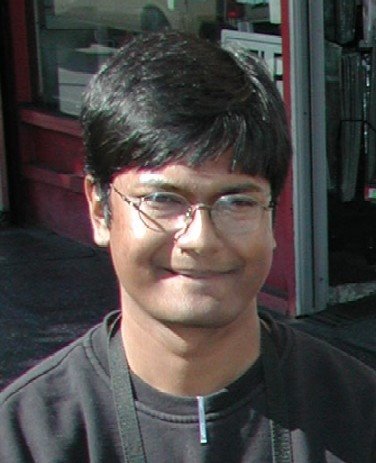While working for WebTek in 2000 I happened to be speaking to a colleague from overseas who said, "Let me check my skejule and get back to you". At that time the sentence created a jarring effect on my ears. A few days later I happened to be watching a movie which had me laughing with respect to the skejule.
An Englishman's way of speaking absolutely classifies him,An erudite British colleague of mine once pointed out certain differences in accents between speakers of American and English. "Nicaragua", he said, "is pronounced 'Nicaragyua' by the English and 'Nicaragooa' by the Americans". That shed some light. Friends of mine who had joined universities in the US for higher studies provided further insight, "Americans pronounce words like they are. Since 'school' is pronounced 'skool', 'schedule' becomes 'skejule'."
The moment he talks he makes some other
Englishman despise him.
One common language I'm afraid we'll never get.
Oh, why can't the English learn to set
A good example to people whose
English is painful to your ears?
The Scotch and the Irish leave you close to tears.
There even are places where English completely
disappears. In America, they haven't used it for years!
Why can't the English teach their children how to speak?
Really? Why is "argue" still "argyu" and "tongue" still "tung", then? I also reasoned that it should have acutally been 'skedule', but then figured out that 'individual' is pronounced 'indivijual'. The American interpretation of the language is actually just that - an interpretation. That isn't to say that it is wrong. Language, after all, is how you define it.
A lot of words have been taken liberties with, not only in terms of pronunciation but also in terms of their spelling and meaning. Being from a place that was a British colony not long back and working in the US most of the time poses a difficulty of switching contexts every now and then. I am in the habit of writing "civilise", "analyse" etc., which my word-processor has a ripe gripe with. I also write "fulfil" as opposed to the American "fulfill". "Program" has made its way into my dictionary, but only when I am talking about a computer program. I guess things will get really creepy the day I start saying "I cannot believe where I am at."
Raymond: That is what has got me to where I am at.That is gross. Truly gross. Another thing that vexes me is the use of "presently" to mean "currently", while it actually means, "in a short time". "Prodigal" is another word whose meaning has changed quite a lot in the last couple of decades.
Marie: Where I am at?
Raymond: Where I am... where I am.
Marie: Have I taught you nothing?
Raymond: I know, I know. You cannot end a sentence with a proposition... A preposition.
As a general rule I have decided to stick with the English roots rather than the American variants because I believe that in most cases the American variants start out as idealistic approaches and then lose their way. Moving beyond the realm of language, I recently discovered the discrepancy between and American gallon and an Imperial gallon (which is used in the rest of the world, wherever the FPS system is still in vogue). I believe that I can be forgiven in this regard because India uses the SI system, which is much easier to handle. But what is the point of having two different measurements with the same name?
Then there is the custom of left-hand drive and right-hand drive. And here is a curious thing - there is a reason for travelling on the left side of a road. In medieval times when Englishmen travelled on horseback, they used to doff their hats at people coming from the opposite direction using their left hand. That way if they saw an adversary coming they could have their right hands free to draw their swords and fight (most people were right handed). It thus made sense to travel on the left side of the road. This practice extended to horse-driven carriages and eventually automobiles. I don't know the reason for driving on the right side of the road, though I can only guess that since most people in a sample set used to be right-handed the tendency was to choose the right half of the road (assuming that you weren't going to be fighting while using a road).
An interesting digression - why are a large number of Chinese left-handed? Again, here I don't have a concrete answer, but I do have a theory. In February this year while my wife and I were doing the Singapore tour that Singapore Airlines provides, the tour guide showed us the "Suntec Building" that was shaped like the left hand. She explained that it had everything to do with Feng-Shui and Yin and Yang. The right hand gives away wealth and the left hand gets in wealth. In places where such beliefs are strong you would naturally encourage your children to be left-handed since that would be considered auspicious.
Back to Americanisms. Actually another digression. I have a large number of vegetarian friends. Some of them claim that they do not eat meat because it is cruel to animals. And they continue to use leather purses/wallets, belts, bags, jackets and shoes. Another attempt at starting out idealistic and stopping midway.
Anyway, English as a language is fine. And the American interpretation is fine as well. As I said, language is all about communicating. And both the versions are mutually compatible. They don't castigate you for not getting your pronunciation right. So everyone is happy. And let me schedule my next blog update.
